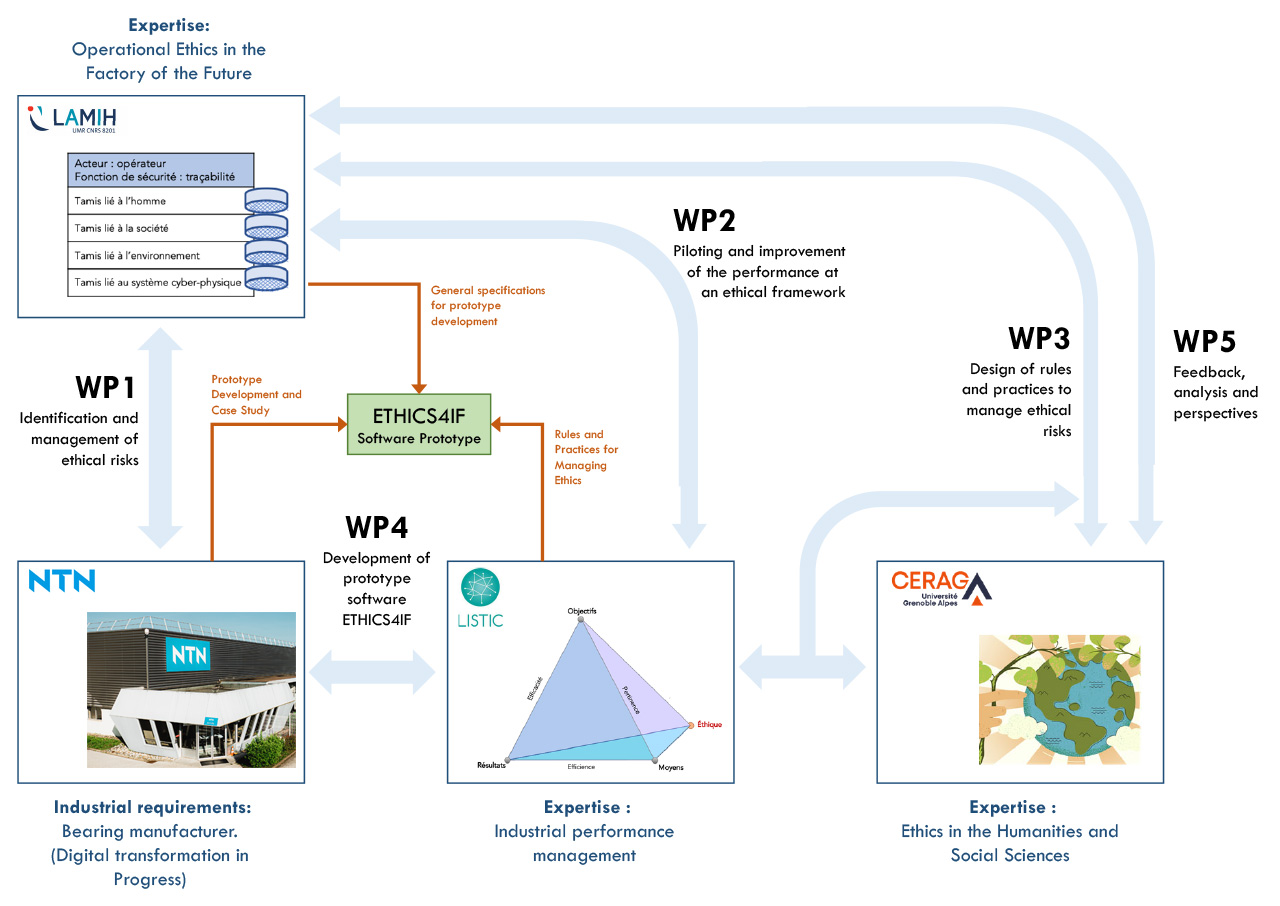Project structure
The Ethics40 project is composed of 6 work modules (6 Working packages or WP), articulated to develop the 3 scientific axes:
- Axis 1 - Identification and management of ethical risks,
- Axis 2 - Improvement of industrial performance within an ethical framework,
- Axis 3 - Design of rules and practices to manage ethical risks.
The following diagram illustrates the relationship of axes between the work packages (or WP)

Working Packages
The activities to be carried out in each of the working packages (WP) of the ETHICS40 project are detailed below:
WP1 : State of the art and research question
Identification and management of ethical risks
- State of the art: fundamentals of ethics, applied ethics and ethics in decision-making
- State of the art: applied ethics and ethical issues in the industry of the Future
- State of the art: strategies, tools, measures for risk management
- Creation of a typology of ethical risks in the industry of the Future
- Development of a guide for the identification and management of ethical risks
- Validation with partner and experimental platform
WP2 : Specifications
Management and improvement of industrial performance within an ethical framework
- State of the art: Models for steering and continuous improvement of performance
- Deployment of the performance tetrahedron on the proposed management model
- Specifications of the system of performance indicators integrating ethical risks
- Development of a measure of the ethics of the industry of the Future
- Validation with partner and experimental platform
WP3 : Development 1
Design of rules and practices to manage ethical risks
- Analysis of frameworks and current legislation
- Analysis of proposed approaches (risks, rules and indicators)
- Definition of new rules and practices
- Validation with the law firm
WP4 : Développement 2 et Expérimentations
Realization of the ethics4if software tool: integration and experimentation
- Identification of the need for the prototype ETHICS4IF
- Construction of the backlog (all User Stories)
- Development of the prototype (by iteration)
- Implementation, testing, debugging
WP5 : Valuation of the result
Feedback, analysis and prospectives
- Evaluation of experiences in focus groups (rules and practices)
- Evaluation of software operation (Individual interviews)
- SWOT analysis to evaluate the progress of the developed model
- Root cause analysis to identify improvement of the model (Practices and software)
- Prospective analysis based on possible future scenarios
- Realization of innovation workshops to explore new development opportunities